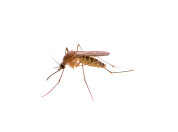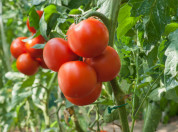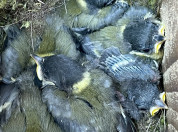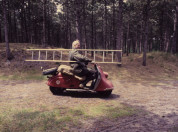Search
Filter by
Type
Tags
Dossiers
Themes
Departments
Active filters
1032 search results
Search results
-
Hbo/MSc student project: microbial N2O emission and CH4 oxidation in agricultural soil
Upland soils play an important role in climate regulation by acting as both sinks and sources of greenhouse gases (GHGs), such as nitrous oxide (N₂O) and methane (CH₄). Compared with natural upland ecosystems, agricultural soils often exhibit higher “leakiness” owing to intensive management practices such as high nitrogen inputs and frequent soil disturbances. These practices can reduce the CH₄ sink capacity while enhancing N₂O emissions. In a previous chapter of our work, we use extensive observational data to identify pathways through which agricultural practices may affect methane oxidation and nitrification. This student project will take an experimental approach to validate and extend those findings, linking management to soil GHG “leakiness” and the responsible microbial communities. -
Harnessing the seed microbiome for seed and plant performance under stress - MiSeed internship
The seed microbiome has gained increasing interest since it influences key aspects of plant life, including germination, seedling vigour, nutrient uptake, and tolerance to biotic and abiotic stresses. However, the microbial functions and molecular mechanisms that link seed-associated microbes to seed and plant performance remain largely unknown. -
PhD thesis defence Jurrian van Irsel: From mosquitoes to birds
Jurrian van Irsel will defend his PhD thesis, titled "From mosquitoes to birds: Unravelling the role of avian hosts in vector-borne pathogen dynamics".
-
Delavaux group
Our group is interested in understanding mutualism impacts on plant ecology and biogeography. How do plant interactions – from microbial mutualists to biotic pollinators – shape plant distributions, diversity and ecology? We also study human impacts on plants, microbes, and mutualistic interactions; this includes human pressures such as land use change, nutrient deposition and invasion. We study all plant associated mutualisms, but have a strong focus on mutualistic mycorrhizal fungi. -
PhD thesis defence Stalin Sarango Flores: "Microbial footprints of tomato domestication"
On Tuesday 6 January, Stalin Sarango Flores will defend his PhD thesis, titled “Microbial footprints of tomato domestication”.
-
Long-term nest box research offers insight into trends in nature
Great tits can't complain about a lack of attention. The Netherlands Institute of Ecology (NIOO-KNAW) has hung nearly two thousand nesting boxes throughout the Netherlands for this “model species”. For seven decades researchers have been following the ups and downs of these songbirds. This makes it the longest-running study in the world of individually recognisable animals. The family trees, caterpillar peaks and breeding successes outline the development of climate change, acid rain and adaptation to a changing world.
-
Soil Animal Days 2026
In een gezonde bodem leven bodemdieren. Zoek je mee? Dat kan overal: in je eigen tuin, het park om de hoek, op het schoolplein of zelfs het balkon. In 2026 voor de 12e keer alweer.
-
Alumni Community
For NIOO it is important to keep in touch with our alumni. Therefore we created an alumni community.
-
Data breach discovered at the KNAW
On 24 November, the KNAW discovered a data breach caused by a phishing email. From 17 November onwards, a hacker had access to the mailbox of a KNAW employee and used that account to send phishing emails to contacts listed in it.
-
Climate change effects on plant-fungal interactions in wetland and heathland systems
Are you curious about how climate change will impact plant growth in wetland and heathland systems? We are looking for a motivated student to study how mutualistic fungi (ericoid mycorrhizal fungi) respond to elevated temperatures and what this means for the plants they associate with.
